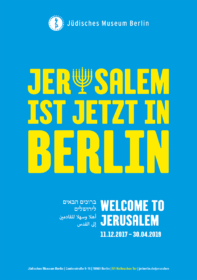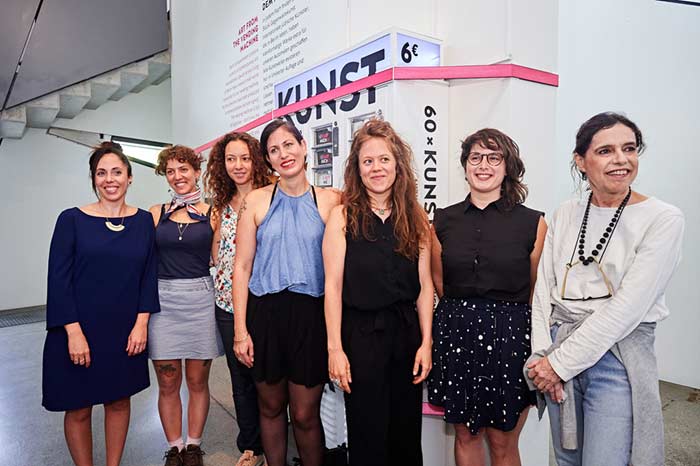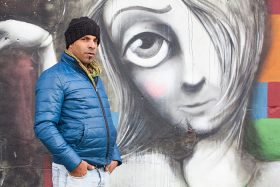How school children react to the tour through the exhibition Welcome to Jerusalem. A conversation with Marc Wrasse

Campaign for the exhibition Welcome to Jerusalem; Jewish Museum Berlin, designed by: Preuss und Preuss GmbH
You’ve worked for the Jewish Museum Berlin for many years, as well as for other museums. What makes this exhibition special?
The Jewish Museum Berlin has a wide variety of visitors—the audience here is nearly as diverse as the modern world itself. If you visit the museum or work here, you can have a lot of different experiences, including in experimental exhibitions such as Obedience (more information about the exhibition on our website). Due to their social and political significance, I always find encounters during tours through Welcome to Jerusalem (more on our website) to be something special. Muslim students in particular—and that label encompasses much variety, ranging from the third-generation Turkish people in Germany to Syrian war refugees with their anti-Israeli background—are highly attentive in this exhibition.
Why is that, in your opinion?
→ continue reading
Last round (for now) for the art vending machine
It is one of our museum’s little success stories: this year will see the art vending machine’s fifth (and, for now, last) tour of duty in the permanent exhibition. After five years “Art from the Vending Machine” will have sold over 12,250 works. Maren Krüger, curator of the permanent exhibition, explains its achievement thus: “We know that visitors enjoy taking something away with them, that they like surprises and are interested in the present time. In addition, we want a permanent exhibition that’s alive, that always offers something new. That’s how the concept emerged.”

The artists of the fifth round of the art vending machine; Jewish Museum Berlin, photo: Yves Sucksdorff
As with all projects that work well, a number of people were involved. First of all, there’s Christiane Bauer, our former colleague who supplied the idea. She was inspired by the art vending machines at the Kunsttick Agency, which can now be found all over Germany. In fact, while searching online for a suitable model, she came upon an old vending machine from the 70s that stood in a sports center in the Rhineland-Palatinate province. First though, it had to be transported to Berlin… → continue reading
Three Question for Anthropologists Dr. Dani Kranz and Katja Harbi

Photo: Katja Harbi
Our Academy programs regularly introduce new scholarship examining contemporary issues of migration and diversity. On May 4, University of Wuppertal anthropologists Dr. Dani Kranz and Katja Harbi will be presenting the results of the study they conducted, entitled Israeli Migration to Germany since 1990, with a lecture and show of photographs at the Jewish Museum Berlin. The research was largely about these immigrants’ identities and the significance of the Shoah for their lives in Germany, as well as the political and ideological debates occurring around them in Israel and Germany. We put three questions to the two anthropologists in advance of their presentation: → continue reading


